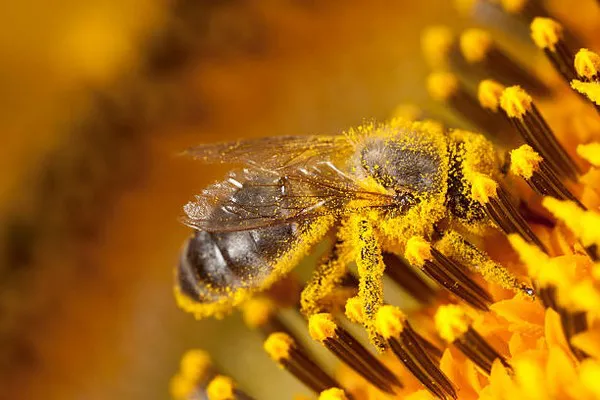Allergy-induced tinnitus is a distressing condition that affects a significant portion of the population. This article explores the relationship between allergies and tinnitus, delving into the underlying mechanisms and potential risk factors. We then examine various treatment approaches that have shown promise in managing allergy-induced tinnitus, including medical interventions, lifestyle changes, and alternative therapies.
Tinnitus is a condition characterized by the perception of sound in the absence of any external stimulus. Allergic reactions, specifically in the respiratory system, have been known to trigger or exacerbate tinnitus symptoms in susceptible individuals. Understanding the connection between allergies and tinnitus is crucial to develop effective treatment strategies for those suffering from this distressing symptom. Read on, and for more tips, check out Best Strategies for Managing Allergy Headaches.
1. The Link between Allergies and Tinnitus
Allergic reactions trigger an immune response, releasing histamines and other inflammatory mediators. These substances can affect the blood vessels and nerves in the ear, leading to symptoms such as tinnitus. Moreover, the Eustachian tube dysfunction resulting from allergies can cause pressure imbalances, affecting the inner ear and auditory system, further contributing to tinnitus.
2. Identifying Allergens and Triggers
To effectively manage allergy-induced tinnitus, it is vital to identify the allergens and triggers responsible for the allergic reaction. Common allergens include pollen, pet dander, dust mites, mold spores, and certain food items. Skin prick tests and blood tests can help pinpoint specific allergens, enabling targeted treatment and allergen avoidance.
3. Medical Interventions for Tinnitus
Antihistamines: These medications block histamine receptors, reducing the inflammatory response and alleviating allergy symptoms, including tinnitus.
Decongestants: By reducing nasal congestion and opening the Eustachian tube, decongestants can relieve pressure imbalances in the ear and mitigate tinnitus.
Immunotherapy: Allergy shots or sublingual immunotherapy can gradually desensitize the body to specific allergens, potentially reducing the severity of allergic reactions and associated tinnitus.
Corticosteroids: In severe cases, corticosteroids may be prescribed to manage acute allergic reactions and reduce inflammation.
Anti-inflammatory drugs: Nonsteroidal anti-inflammatory drugs (NSAIDs) can be beneficial in addressing inflammation-related tinnitus symptoms.
4. Lifestyle Modifications for Tinnitus
Allergen Avoidance: Identifying and avoiding allergens can significantly reduce allergic reactions and the consequent tinnitus. Regular cleaning, air purifiers, and keeping windows closed during peak pollen seasons are simple but effective measures.
Dietary Changes: Eliminating potential allergens from the diet may help alleviate allergic responses, impacting tinnitus as well. Consulting with a dietitian can guide individuals in creating allergen-free meal plans.
Stress Management: Stress can exacerbate tinnitus symptoms. Techniques such as meditation, yoga, and deep breathing exercises can reduce stress levels and aid in managing tinnitus.
Maintaining Ear Health: Practicing good ear hygiene and protecting the ears from loud noises can prevent additional complications and improve tinnitus symptoms.
5. Alternative Therapies
Acupuncture: This traditional Chinese therapy involves inserting fine needles into specific points on the body to rebalance energy flow. Some studies suggest that acupuncture may offer relief for tinnitus.
Herbal Supplements: Certain herbal supplements, such as ginkgo biloba, have been investigated for their potential benefits in managing tinnitus symptoms.
Sound Therapy: Background noise or white noise can help mask the perception of tinnitus, making it less bothersome for individuals.
6. Individualized Treatment Plans
Every individual with allergy-induced tinnitus may have unique triggers and responses to treatment. Therefore, it is essential to develop personalized treatment plans that consider the patient’s medical history, specific allergies, and overall health. A multidisciplinary approach, involving allergists, ENT specialists, audiologists, and other healthcare professionals, ensures comprehensive care and better outcomes.
Conclusion
Allergy-induced tinnitus can significantly impact an individual’s quality of life, causing distress and discomfort. Understanding the link between allergies and tinnitus is vital for developing effective treatment approaches. A combination of medical interventions, lifestyle modifications, and alternative therapies, along with individualized treatment plans, offers a comprehensive strategy for managing allergy-induced tinnitus. As research progresses, the future holds promising advancements that may revolutionize the management of this condition, providing relief and improved well-being for those affected.
FAQs
1. Can allergy-induced tinnitus be treated?
Yes, allergy-induced tinnitus can be treated. The treatment options include medical interventions like antihistamines, decongestants, immunotherapy, and corticosteroids. Lifestyle changes such as allergen avoidance, dietary modifications, stress management, and maintaining ear health can also help. Some individuals find relief with alternative therapies like acupuncture and sound therapy.
2. How is allergy-induced tinnitus diagnosed?
Diagnosing allergy-induced tinnitus involves a comprehensive evaluation by a healthcare professional. They may perform skin prick tests or blood tests to identify specific allergens causing the allergic reaction. Additionally, a thorough medical history and ear examination will be conducted to confirm the diagnosis.
3. Is there a cure for allergy-induced tinnitus?
As of now, there is no definitive cure for allergy-induced tinnitus. However, with appropriate treatment and management strategies, individuals can experience significant relief from tinnitus symptoms.
4. Are there any home remedies for allergy-induced tinnitus?
While there is no specific home remedy that guarantees complete relief, some individuals find relief by using background noise or white noise machines to mask tinnitus sounds. Additionally, maintaining good ear hygiene, avoiding allergens, and practicing stress-relief techniques can be beneficial.
5. Can allergy shots help with allergy-induced tinnitus?
Yes, allergy shots, also known as immunotherapy, can be effective in managing allergy-induced tinnitus. Allergy shots involve gradually desensitizing the body to specific allergens, which may reduce the severity of allergic reactions and, consequently, tinnitus symptoms.
[inline_related_posts title=”Related Topics” title_align=”left” style=”list” number=”3″ align=”none” ids=”959,955,1131″ by=”categories” orderby=”rand” order=”DESC” hide_thumb=”no” thumb_right=”no” views=”no” date=”yes” grid_columns=”1″ post_type=”” tax=””]

































